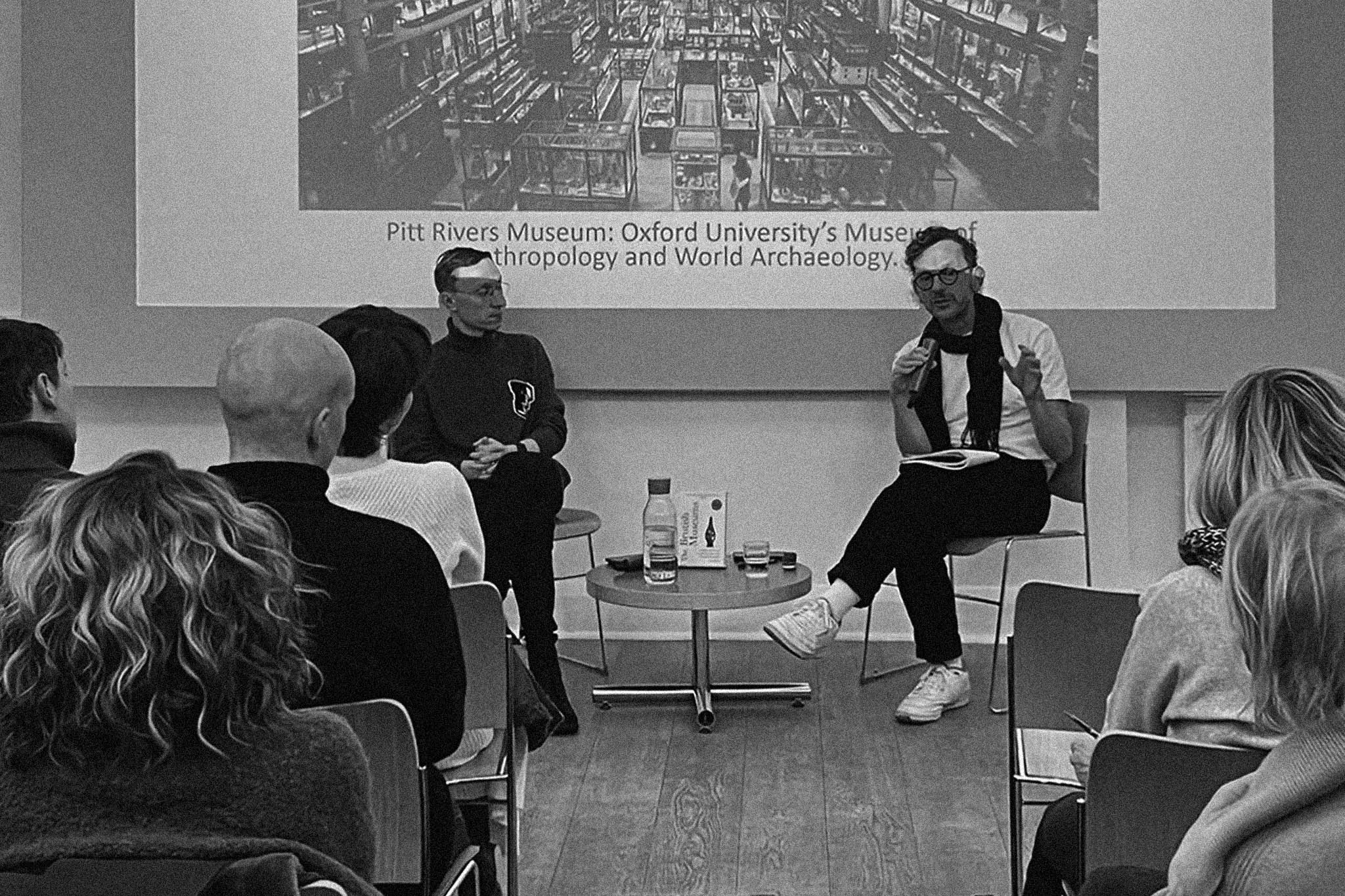Discourse is an annual programme of interdisciplinary events focussing on contemporaneity, cultural history, and art
It features talks, panels, seminars, workshops, lecture performances, artistic interventions, and experimental media.

Does State Equal Culture?¹
Pushkin House, an independent British arts and cultural charity, has been mistakenly associated with the Russian state since its foundation in 1954. The confusion comes from its name, and the association of Pushkin with Russia’s authorities. This is, of course, incorrect, but habits are hard to change. Associations of that sort and ubiquity raise important questions about the politics of monumentality and the autonomy of culture from state power, as well as the responsibility attached to one’s name and collective memory.
The Curse of ‘Greatness’
The tendency to romanticise ‘good old times’ of ‘imperial greatness’² is omnipresent in places such as Russia, Turkey, India, China, and the United Kingdom. Movements of making the state ‘great again’ (as in a re-imagined, mythologised and deep-faked past) fuel the waves of dangerous conservatism and outright neo-fascism across the globe. Complex historical legacies are being reduced to a simple black-and-white dichotomy. What is to be done with cancerogenic nostalgia? Can the curse of ‘greatness’³ be undone?
The Politics of Presentation
Art and aesthetics have intersected with the history of expertise and think tanks, particularly during the Cold War and into the present neoliberal era.⁴ Pushkin House has been a meeting point for imperial emigres, soviet officials, British intelligentsia and orthodox priests throughout its history, hosting complex discussions. Recently, we commenced programming lecture performances – events at the intersection of an academic lecture, experimental theatre and art. In light of these convergences, we ask: what is expertise, and how does aesthetics influence our perception of it?
Black Pushkin
Building on Alexander Pushkin’s multiracial heritage (his great-grandfather was Ethiopian), we aim to highlight the rich Black histories, communities, and heritage within Russian and Eastern European cultures, challenging monocultural stereotypes. From the rise of Russian imperialism to the Soviet Union’s influence in Africa, this strand approaches the dynamic cultural exchanges between Eastern Europe, Eurasia, and the diverse African continent across past, present, and future.
The Discourse programme is envisioned and led by Denis Maksimov, Curator of Art and Programmes at Pushkin House. The first season, which included the strands Black Pushkin, What’s in a Name? and Comparative Imperialisms, was supported by the Foyle Foundation.
¹ Denis Maksimov, State Equals Culture? Art and Cultural Identity in Times of War. A*Desk Magazine, Barcelona, March 2024. https://a-desk.org/en/magazine/state-equals-culture/
² Denis Maksimov, Political Agony and the Legacies of Romanticism in Contemporary Art. The Museum of Modern Art (MoMA), New York, October 2024. https://post.moma.org/political-agony-and-the-legacies-of-romanticism-in-contemporary-art/
³ Coined by Anna Narinskaya in discussion with Denis Maksimov while preparing the Discourse event Russian Literature: The Curse of Perceived Greatness in June 2024. https://www.youtube.com/watch?v=EMBqozocQa4&list=PLaOWP7RcyhR-x2iIHD95qJo9ZExGQKMv_&index=2
⁴ Pamela Lee, Think Tank Aesthetics: Midcentury Modernism, the Cold War, and the Neoliberal Present. Cambridge, MA: MIT Press, 2020.
































